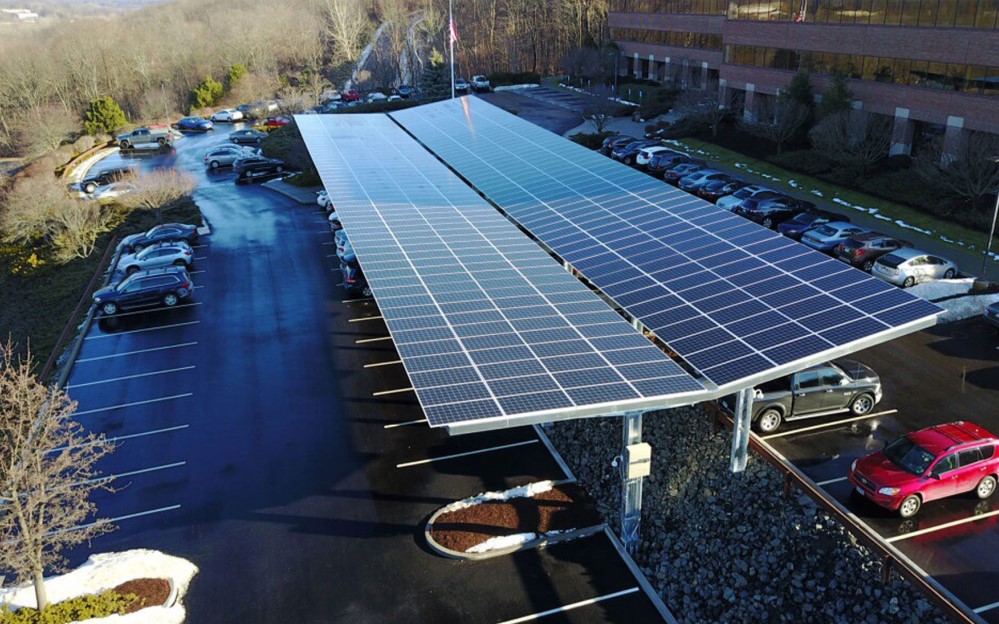Power Your EV or Home With Solar Clean Energy From a Solar Carport
What can be solar clean energy you can use ? A lot of rooftop solar has been installed in the last few years as people look to reduce their reliance on climate-change-causing fossil fuels and save money on electricity bills. This is a kind of solar clean energy. Rooftop solar can pay for itself through energy savings in less than 10 years in certain places and, thanks in part to a robust federal tax credit, is being installed in record-setting amounts each quarter.
But residential solar clean energy isn’t limited just to the rooftop. Homeowners might find that ground-mounted solar panels are a better fit for their needs. Others might opt for a solar carport as solar clean energy, a structure that shelters your car with solar panels.
If you’re considering solar, brush up on how many panels you need, what angle and direction will produce the most electricity and what local regulations and incentives you should consider.
What is a solar carport?
A carport is an open-sided structure that shelters cars from the elements. Think of it as a garage without walls. A solar carport is one where the roof holds or is made of solar panels.
While the definition is fairly broad and relatively simple, their ideal use is narrower and requires a bit more thought.
The cheapest way to get solar panels at home is to put them on your roof. EnergySage, which collects pricing data from its solar marketplace, says the average cost of rooftop solar is $2.81 per watt of solar capacity. Ground-mounted solar panels come in at $3.11 per watt, and a solar carport costs on average $3.31 per watt. While those numbers seem relatively close, if we apply them to a hypothetical 5-kilowatt system, the savings with rooftop solar are even more apparent. (source: internet)
An average-priced 5-kilowatt (5,000 watts) system on a roof would cost $14,050, while a 5-kilowatt carport would cost $16,550. The larger the systems get, the greater the savings are.
Part of this cost difference comes from the additional construction required before the panels can be mounted. A roof already exists, while a solar carport needs to be built from the ground up. In the case of a carport, the panels need to be even higher than ground-mounted panels, which don’t need to fit a car underneath them.
Is a solar carport worth it?
Although rooftop solar is the cheaper way to go, it’s not a fair one-to-one comparison. There are certainly times when a solar carport might make the most sense.
While installing solar on a rooftop makes it cheaper, installing it elsewhere protects your roof. Both roofs and solar panels are products with a long useful life. Solar panels are commonly warrantied for 20 to 25 years and can continue to operate after the warranty expires. While panels can be removed and reinstalled, that can be costly and increase the risk of damage to the roof. Solar companies offer warranties protecting against leaky roofs, but they often expire before the warranties on the panels. Putting up a solar carport removes the roof from the equation.
Sometimes a roof isn’t suited to solar panels: It’s too shaded, facing the wrong direction or has too many obstructions. In this case, a carport might be a better solution.
There is also value in your solar panels not only generating energy but also shading your car. A carport doesn’t offer the security of a garage but does provide shelter from snow and the sun.
While rooftop solar panels can just as easily be used to charge an electric vehicle, a solar carport also offers a natural pairing. And, homeowners looking to join the 26% already running their homes entirely on electricity might need more solar capacity as they adopt more electric appliances and vehicles. Adding a solar carport might make more financial sense than expanding to parts of the roof with less solar potential.
As with any major purchase, make sure you do your research and shop around. You should understand your energy needs and solar potential. Then get multiple quotes from reputable companies, including local installers.


